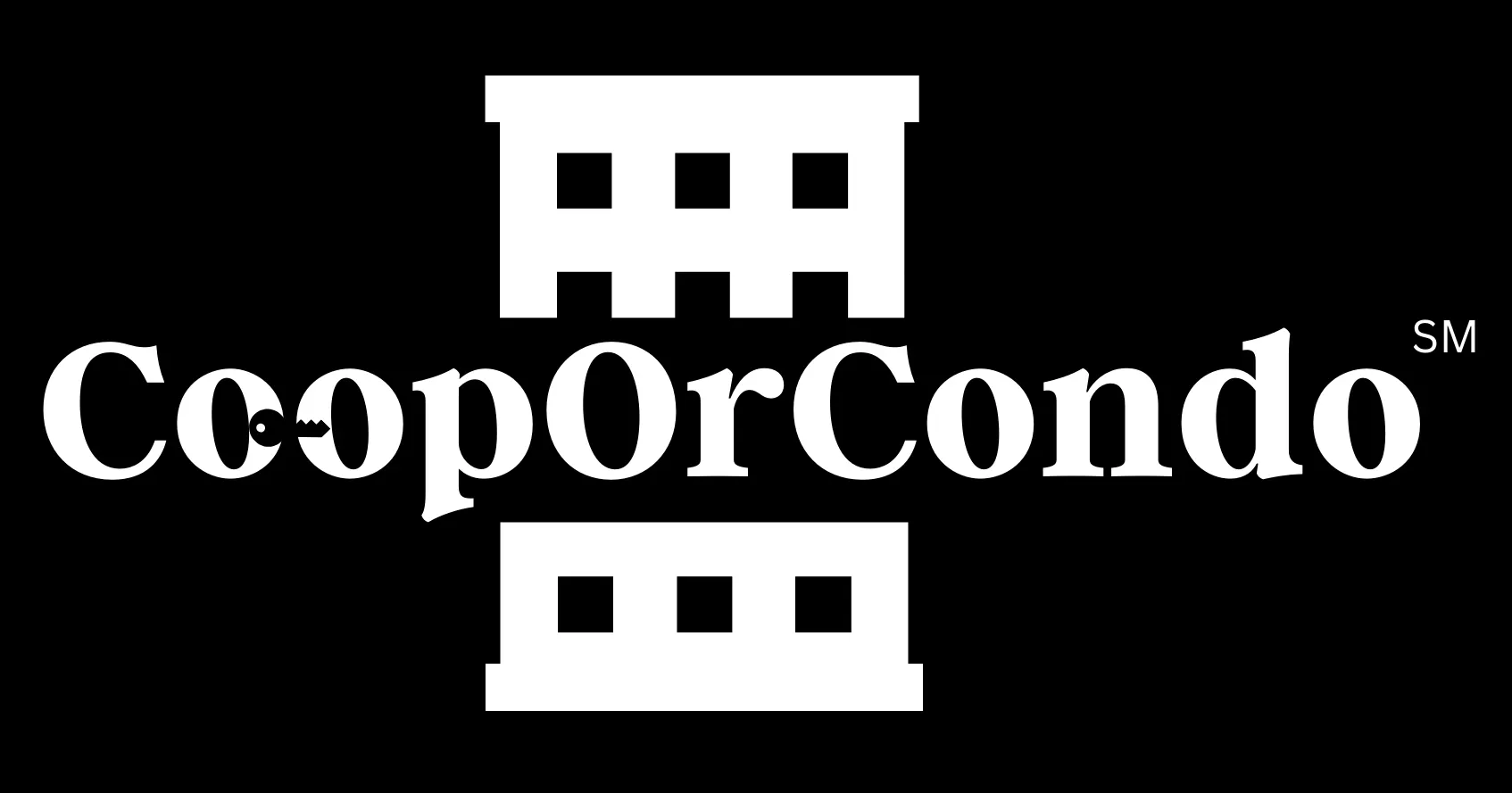The Comprehensive NYC Co-op and Condo Dictionary for First-Time Home Buyers
Welcome to the NYC Co-op & Condo Dictionary, your guide to navigating the complex world of New York City real estate. Whether you're a first-time buyer or just need a refresher, this dictionary will provide you with essential definitions, tips, and common terms used in the NYC real estate market, helping you approach the process with confidence and clarity.

A
Amortization: The process of paying off a loan over time through regular payments. In the context of real estate, this often refers to the gradual repayment of a mortgage loan.
Appraisal: An estimation of the value of a property, conducted by a qualified appraiser. Lenders typically require an appraisal before approving a mortgage to ensure the property's value is sufficient to secure the loan.
Assessment: The value assigned to a property for tax purposes by a local government authority. Assessments can impact property taxes.
B
Board Package: A collection of documents and forms required by a co-op board from a prospective buyer. The package typically includes financial statements, personal references, and a purchase application.
Broker's Fee: A fee paid to a real estate broker for their services in facilitating a real estate transaction, typically equivalent to a percentage of the property's sale price.
C
Closing Costs: The various fees and expenses that buyers and sellers incur in the process of closing a real estate transaction. Closing costs can include appraisal fees, attorney fees, title insurance, and taxes.
Co-op (Cooperative): A type of residential property ownership in which residents own shares in a corporation that owns the building. Residents are considered shareholders and pay monthly maintenance fees for building expenses.
Condo (Condominium): A type of residential property ownership in which individuals own their units outright and share ownership of common areas with other unit owners.
Contingency: A condition that must be met before a real estate contract becomes legally binding. Common contingencies include home inspections, financing, and appraisal.
D
Down Payment: The initial payment made by a buyer when purchasing a property. The down payment is typically a percentage of the property's purchase price and is not covered by the mortgage loan.
E
Equity: The difference between the market value of a property and the amount owed on the mortgage. Equity represents the owner's financial interest in the property.
Escrow: Funds held by a neutral third party in a real estate transaction until all conditions of the sale are met. Escrow can also refer to an account held by a mortgage lender to cover property taxes and insurance.
F
Fixed-Rate Mortgage: A mortgage loan with an interest rate that remains constant for the entire term of the loan. Fixed-rate mortgages offer predictability and stability in monthly payments.
Foreclosure: The legal process by which a lender repossesses a property due to the borrower's failure to make mortgage payments. Foreclosure typically results in the sale of the property to recover the outstanding loan balance.
G
Good Faith Estimate (GFE): A document provided by a lender to a borrower that estimates the closing costs associated with a mortgage loan. The GFE helps borrowers understand the costs involved in obtaining a loan.
H
HOA (Homeowners Association): An organization of homeowners in a condominium or planned community that manages common areas and amenities. HOA fees are paid by homeowners to cover maintenance costs.
Home Inspection: An examination of a property's condition by a qualified inspector. A home inspection can uncover potential issues that may impact the property's value or safety.
Homeowners Insurance: Insurance that protects homeowners against financial losses from damage to their property or personal liability. Homeowners insurance is typically required by mortgage lenders.
I
Interest Rate: The percentage of a loan amount charged by a lender for borrowing money. Interest rates can be fixed or adjustable.
L
Listing Agent: A real estate agent who represents the seller in a real estate transaction. The listing agent is responsible for marketing the property and negotiating on behalf of the seller.
M
Mortgage: A loan used to finance the purchase of a property. The property serves as collateral for the loan, and the borrower repays the loan amount plus interest over time.
Maintenance Fee: A monthly fee paid by co-op owners to cover building expenses, such as maintenance, utilities, and property taxes.
N
Neighborhood: A geographic area within a city or town that has its own distinct character and amenities. Neighborhoods can vary widely in terms of housing options, amenities, and affordability.
O
Offer: A formal proposal to purchase a property at a specified price and terms. An offer becomes a legally binding contract if accepted by the seller.
Open House: A scheduled period during which a property is available for viewing by potential buyers without the need for an appointment. Open houses are often used to generate interest in a property.
P
Pre-Approval: A preliminary determination by a lender of the amount a buyer can borrow to purchase a home. Pre-approval demonstrates to sellers that the buyer is a serious and qualified candidate.
Principal: The amount of money borrowed in a loan, excluding interest. Monthly mortgage payments typically include both principal and interest.
Property Taxes: Taxes levied by local governments on the value of real estate property. Property taxes are used to fund public services, such as schools and infrastructure.
R
Real Estate Agent: A licensed professional who represents buyers or sellers in real estate transactions. Real estate agents are typically paid a commission based on the sale price of the property.
Refinance: The process of replacing an existing mortgage with a new loan, typically to take advantage of lower interest rates or to change the terms of the loan.
S
Seller's Disclosure: A document in which the seller discloses any known defects or issues with the property to the buyer. Seller's disclosures are intended to inform buyers about the condition of the property.
Subletting: The act of renting out a property that is currently leased by a tenant. Subletting is subject to the terms of the original lease agreement and often requires the landlord's approval.
T
Title Insurance: Insurance that protects property owners and lenders against financial loss due to defects in the title of a property. Title insurance is typically required by mortgage lenders.
W
Walk-Through: A final inspection of a property by the buyer before closing to ensure that any agreed-upon repairs have been completed and that the property is in the expected condition.
Warranty Deed: A legal document that transfers ownership of a property from one party to another, guaranteeing that the seller has clear title to the property and the right to sell it.
Z
Zoning: Local regulations that dictate how land can be used in a particular area. Zoning laws can impact property values and the types of structures that can be built in a given area.
Ready to take the next step in your home-buying journey? Contact us today for personalized guidance and expert advice.


